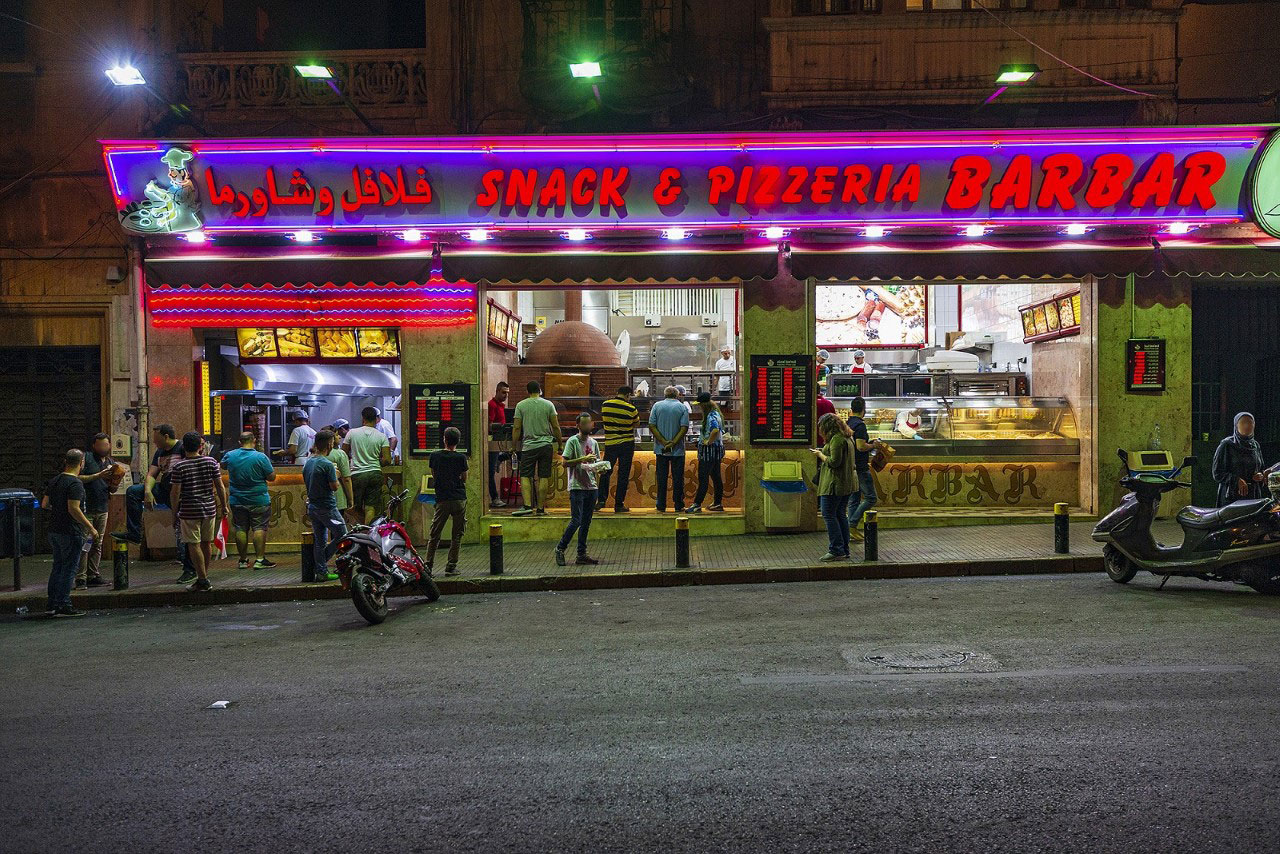
by arabianbusiness.com — Born during Lebanon’s civil war, the Barbar restaurant is now expanding from its humble beginnings across the Gulf, bringing the popular Beiruti street food to Saudi Arabia and the UAE. The 43-year-old Barbar will open its doors on Dubai’s Hessa Street around mid-May. In partnership with Kitch, the iconic Beirut restaurant will further expand in the GCC with eight restaurants and cloud kitchens planned for the UAE and 20 in Saudi Arabia, four of which will start operating in Riyadh in the second quarter of this year. Kitch said it will also open two Barbar restaurants in Qatar by the beginning of 2022. Mohammad Ghaziri launched Barbar in 1979 during the Lebanese civil war as a small manouche bakery in front of the famous Piccadilly theatre in the heart of Beirut. Within the first few years of opening, the restaurant gained fame and was visited by singers, artists, and celebrities who performed at the theatre.
Barbar remained open for the remainder of the war and continues to remain open 24/7, though it briefly shut its doors during government-mandated coronavirus lockdowns. Today, Barbar is regarded as a tourist attraction. Out of the 700 items on Barbar’s Beirut menu, 160 menu items will make the trip to the GCC in a condensed version of the menu which still includes shawarma, falafel, barbecue, some cocktails and staple sandwiches. Hybrid cloud kitchen concept Kitch targets GCC growth after Saudi, UAE launch “Choosing from 700 items is not an easy task, but the most important thing is providing the same experience for consumers here that is found in Lebanon in terms of the quality of food, the variety, the most popular items and the overall service,” said Walid Hajj, co-founder and CEO of Kitch. Keeping the Beirut feel Similar to the Beirut version, regional Barbar will be within the affordable price range but Hajj invoked the Big Mac index to illustrate that prices will be based on what is considered reasonable in the country of operation.
Maintaining the same taste and quality is one of the more challenging aspects for restaurants that expand out of their home country but Kitch and Barbar believe they are taking the right measures to do so. “Barbar is a family business run by myself, my brothers and uncles so we are all personally involved. I am here meeting with Kitch’s team personally instead of delegating it because our goal is for our partners to understand what we do at every level even if we have to walk every step with them,” explained Ali Ghaziri, chief operating officer of Barbar. “Ali and I talk all the time about how we want to ensure the same experience in Lebanon. You do so by choosing the right people and training them, as well as being thorough about the freshness of ingredients and their quality,” said Hajj. Given its history, Barbar itself provides a lot of leverage in the face of competition, said Hajj.
Built during war Barbar is well recognized by Lebanese and nearly anyone who has passed through Beirut, and this recognition among the Lebanese expats is what Hajj and Ghaziri are counting on to gain initial traction in the region. “What a brand like Barbar allows you to do, especially given its longevity, is it allows you to start at a high level. You have the Lebanese community who will pick you up immediately, from a business perspective, and give you that volume you need,” explained Hajj. Hajj was also behind Lebanese fastfood brand Zaatar w Zeit’s expansion into the Gulf in his previous role with Cravia Group, a Duba-based restaurant company. “What we are hoping for is with our marketing and word of mouth, other people try it and like it as well, which will allow us to expand our customer market from a nationality perspective,” he continued. Although not Lebanese, Hajj said he is a fan of Barbar having frequented it on his many trips to Beirut. Along with his partner Fahad Alhokair, Hajj felt there would be a place for Barbar in Saudi Arabia and the UAE. ‘We will emerge stronger,’ says Dubai hospitality boss after Covid-19 rules tightened Expansion
Hajj recalled how he called Barbar and asked the manager to connect him with the owners. Although he thought the manager would forget, Ghaziri called him back an hour later and the “rest was history”. Kitch entered the F&B sector earlier this year with privately raised capital of $15 million, and Hajj said they are trying to gather “the best of the best of all the brands across the globe”. “It just so happens that in the Middle East, Lebanon is the most creative market in terms of restaurant concepts. Definitely more concepts from Lebanon are on the horizon but we are also looking at creating our own concepts where gaps exist,” said Hajj. Kitch is also looking at further collaborations with Ghaziri where Barbar would create new brands in Lebanon that could be franchised to the region.
Kitch is focusing on bricks and mortar stores as well as cloud-based operations, all in the fast-casual or casual dining category with plans to open four delivery kitchens in Riyadh in the second quarter of this year and additional 15 kitchens across the GCC by the end of 2021. Each delivery kitchen is equipped to serve around 10 food concepts.



